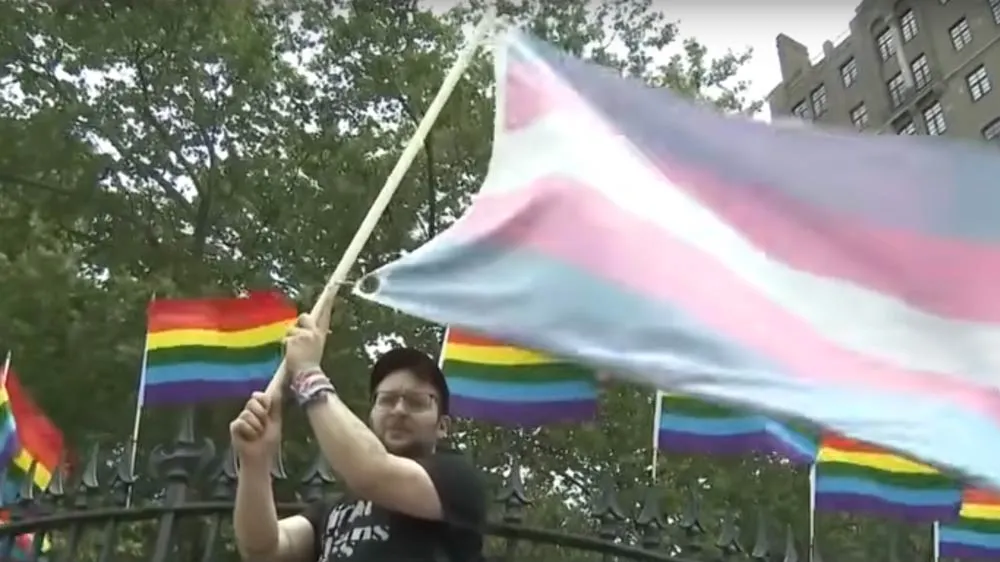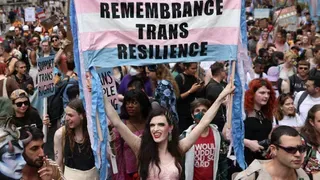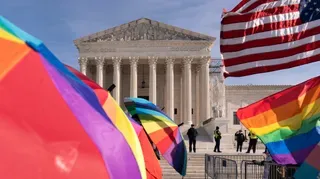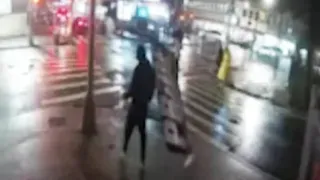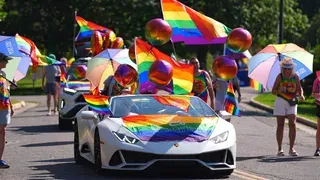May 25, 2008
A kiss is not just a kiss
Michael Wood READ TIME: 6 MIN.
Last October Ed Ford, a 64-year-old Bostonian and president of the Boston Prime Timers, stood up before a crowd at the Boston Center for the Arts on National Coming Out Day and read them a story that he had never publicly shared with anyone else. The subject of the story was a kiss.
But it wasn't just any old peck on the cheek. Ford shared the story of the first kiss he received from a man after he had finally acknowledged to himself that he is gay. He told the crowd about joining Dignity Boston, the LGBT Catholic group, in 1980 at age 37, shortly after his divorce, as a way to expand his gay social circle and maybe find a boyfriend. He began flirting with a man named Pete, finding excuses each week to walk him home. One day Pete invited him up to his apartment to use the bathroom. Just as Ford was about to leave Pete leaned in and kissed him. A marathon session of kissing followed, and Ford told the audience it took two weeks before his chapped red lips finally healed.
Even though it was one of the formative experiences in the development of his gay identity, Ford had never before shared the story, believing that no one else would be interested.
"There had never been a place [to tell it], I think, actually. To me it was only interesting to me. ... It was just a story I had inside," said Ford.
Ford and the 10 men with whom he shared the stage were part of a National Coming Out Day project conceived by Bob Linscott of the LGBT Aging Project and writer Judah Leblang, both Bay Windows columnists. The project, called "When He Kissed Me," involved gathering a dozen gay men together and helping them develop monologues either about their first same-sex kiss or about a particularly memorable kiss. Eleven of the 12 men stuck with the program for four weeks of writing workshops, and they performed their work for National Coming Out Day. Linscott conceived the project partly as a way to bridge the gay generation gap and between older and younger gay men; he also felt it was important to create a celebration of milestones in the lives of LGBT people. He also believed that talking about a kiss, rather than a coming-out story, might prompt some original and profound stories.
"I think the coming out story is a little, I don't want to say overdone ... but [a kiss] really is a whole different entry point in, because the first kiss, a lot of us aren't even out at that point. And in some cases that can be the catalyst for coming out," said Linscott.
With one performance under their belt Linscott and Leblang have plans to turn "When He Kissed Me" into a National Coming Out Day institution. The pair will hold two more four-week writing workshops for local gay men to hone essays about their first kiss, the first beginning June 5 and the second on September 11. Both groups of participants will perform readings of their work on National Coming Out Day. Many of those essays will join the essays from the first round of the project in a forthcoming book, currently planned for a fall 2009 release by gay publisher White Crane Press.
Ford said that as the oldest man participating in the first group he was struck by the generational differences in the stories. The youngest participant, Harlan Lieberman-Berg, is 18; Ford said the teen's story and those of the other younger men in the group involved far less secrecy than his own.
"The younger the guys were who were talking about it, the less of a secret the whole thing was. ... There was no issue about being gay and kissing anybody. Whereas for me it was, wow, this was a whole big deal, at that point in my life and at that age," said Ford.
Lieberman-Berg said he chose to tell the story of one particular kiss precisely because it felt perfectly ordinary. He wrote about his first boyfriend coming over to his dorm on snowy Friday when they were in their mid-teens and kissing him in the hallway. Lieberman-Berg said it was hardly their first kiss, but it stuck out because it seemed so normal and natural.
"The reason it was so memorable to me was because it was so normal. It was no longer special in the sense of, wow, this is something I've never done before. There was this normality in having a relationship with another person and being free and public about it," said Lieberman-Berg.
Age was not the only distinguishing feature between the different performers. Stone McShane, a 42-year-old transman from Roxbury, was the lone transgender member of the group, and he focused on an entirely different kind of first kiss: his first kiss after having top surgery. In his essay he described how, in the spring of 2001, he and some friends went to a leather bar, where he met a leatherman named Gino, a man he had been attracted to for a while. Gino led him outside, supposedly to talk, but when they got outside the bar Gino pushed him against a wall and began kissing him.
"When I am able to speak, I start to say something about people thinking he is kissing a [woman]. Before I am even finished the word he stops me, leans in and says 'I just kissed a man.' And with that he walked back inside the bar," McShane wrote in his essay.
Like Ford, McShane said the "When He Kissed Me" performance was the first time he had spoken publicly about that kiss. From the beginning the other participants in the group welcomed him into the fold, he said, but he felt nervous the night of the performance. National Coming Out Day coincided with a torrential storm, and none of McShane's friends made it to the BCA.
"That was nerve-wracking, to look out in the audience and not see a familiar face. ... I have let friends see the performance, because I had taped it, and they were enthusiastic about it, so I think it went well," said McShane.
Lance Hatch, a 48-year-old gay man working in publishing and technology development who also recently recorded his first album as a singer-songwriter, said that he intentionally chose a kiss that was not a first but a last. One month after breaking up with his boyfriend, in November 2001, he and his ex decided to re-enact one of the yearly rituals of their relationship, hunting for pine cones and berries and other decorations to make Christmas wreaths. As they loaded their branches and pine cones into the car Hatch felt his ex lightly kiss him on the nape of his neck. In his essay he writes that he was almost overcome with emotion.
"And then, I see it all. I 'get it' . . . all. Finally, I understand. Even though we're no longer a couple, though we may never be physically intimate again, and though we may never spend another lifetime together, I understand that he still loves me. I know now he loves me unconditionally, forever and for always," wrote Hatch.
He said he chose that story because he believes there are few examples of gay men in popular culture grappling with profound emotions.
"What I think made it unique is it's got that sense of universality, but there's something in the gay experience that we're not often encouraged to express. The focus is on dealing with that sort of heartbreak and adversity with humor as opposed to sort of head on, frank expressions of feeling and discussion," said Hatch.
Leblang, who led the writing workshops and performed his own piece at the National Coming Out Day event, said at the start of the project he and Linscott were unsure whether the group of strangers who gathered to write their stories would be able to produce something that would work on stage. He said they were thrilled with the results and hope that they can duplicate that magic with the participants for the next workshops this June and September. Beyond National Coming Out Day and the plans for a book of the essays Leblang said he and Linscott may in the future try to take the show on the road, bringing small groups of the essayists to give readings at smaller venues around the state. He said he believes the honesty behind the personal stories connects with audiences in a way that most pop culture does not.
"I think having these guys up there, each of us had the chance to be up there and tell our stories with our own voice and our own words and our own way of speaking. And you could feel in the room that the audience was very present. ... So much of our entertainment in our society is superficial rather than having depth, and because these stories were real they had depth," said Leblang.
For more information about the June and September "When He Kissed Me" workshops contact Bob Linscott at [email protected] or Judah Leblang at [email protected].
Michael Wood is a contributor and Editorial Assistant for EDGE Publications.
